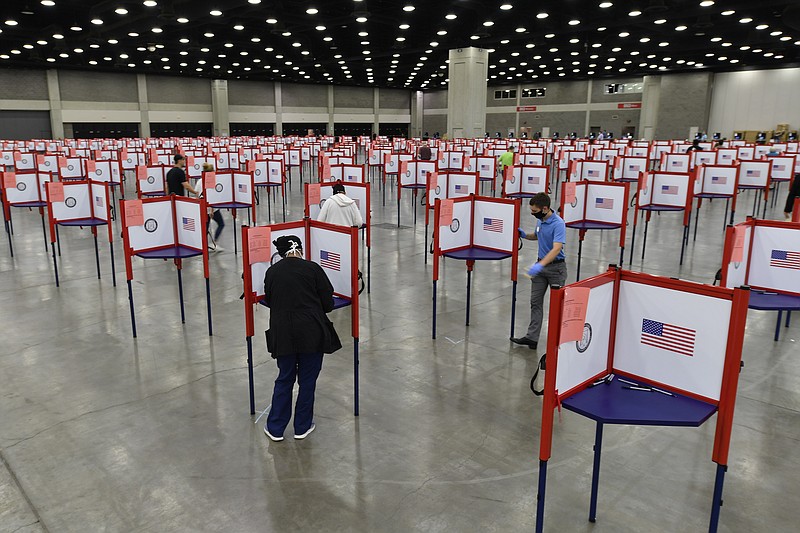WASHINGTON -- The demand for mail-in ballots is surging. Election workers need training. And polling booths might have to be outfitted with protective shields during the coronavirus pandemic.
As officials prepare for the Nov. 3 election, one certainty is clear: It's coming with a big price tag.
"Election officials don't have nearly the resources to make the preparations and changes they need to make to run an election in a pandemic," said Wendy Weiser, head of the Brennan Center for Justice's democracy program. "We are seeing this all over the place."
The pandemic has sent state and local officials scrambling to prepare for an election like few others, an extraordinary endeavor during a presidential contest, as virus cases rise across much of the U.S.
Covid-19-related worries are bringing demands for steps to make sure elections just four months away are safe. But long-promised federal aid to help cash-starved states cope is stalled on Capitol Hill.
The money would help pay for transforming the age-old voting process into a pandemic-ready system. Central to that is the costs for printing mail-in ballots and postage. There are also costs to ensure in-person voting is safe with personal protective equipment for poll workers, who tend to be older and more at risk of getting sick from the virus, and training for new workers. Pricey machines are needed to quickly count the vote.
"As cases of coronavirus in this country rise, it's vital that all voters be able to cast their ballots from home, to cast their ballots by mail," said Sen. Amy Klobuchar, D-Minn.
A covid-19 response bill passed by the House in May contains $3.6 billion to help states with their elections, but the Senate won't turn to the measure until late July. Republicans fought a $400 million installment of election aid this March before agreeing to it.
But key Senate Republicans seem likely to support more election funding, despite President Donald Trump's opposition, and are even offering to lower a requirement that states put up matching funds to qualify for the federal cash.
"I'm prepared not only to look at more money for the states to use as they see fit for elections this year but also to even consider whatever kind of matching requirement we have," said Roy Blunt, R-Mo., chairman of the Senate panel with responsibility for the issue. "We can continue to work toward an election that produces a result that people have confidence in and done in a way that everybody that wants to vote, gets to vote."
Voting rights groups are particularly concerned with the consolidations of polling places that contributed to long lines in Milwaukee, Atlanta and Las Vegas. They fear a repeat in November.
As negotiations on the next covid-19 relief bill begin on Capitol Hill, the final figure for elections is sure to end up much less than the $3.6 billion envisioned by the House, which followed Brennan Center recommendations to prepare for an influx of absentee ballots while providing more early voting options and protecting neighborhood polling places.
Information for this article was contributed by Frank Bajak of The Associated Press.

